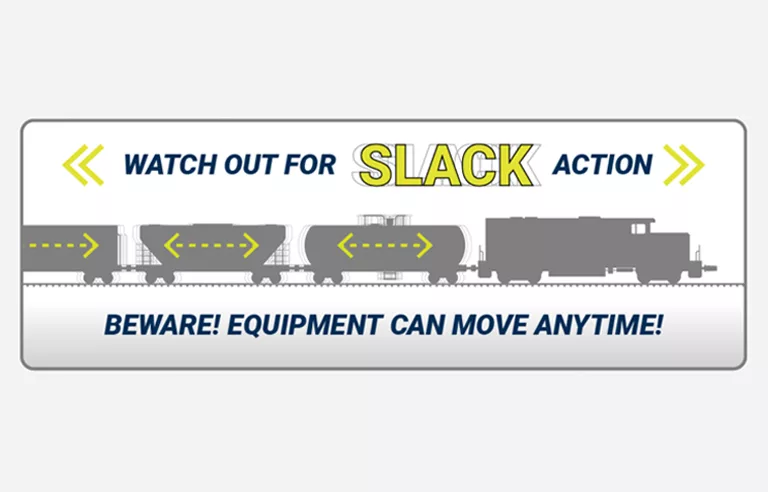
Photo: National Transportation Safety Board
Washington — Although it may appear stationary, unsecured railroad equipment can move unexpectedly and injure or kill workers, the National Transportation Safety Board warns in a new safety alert.
The agency says it investigated five incidents between July 2024 and July 2025 in which railroad employees were seriously injured or killed when they fouled the track (meaning they were within 4 feet of the nearest rail) and were struck by equipment that wasn’t secured.
The alert states that unsecured equipment can move when brakes are released unintentionally or applied incorrectly, or when an inadequate number of hand brakes are applied. Railcars coupled with locomotives can begin to roll when locomotive controls aren’t properly secured or an engineer unintentionally manipulates the brakes, throttle or reverse.
Freight cars and tank cars can move when a load shifts or liquid in a tank sloshes, creating unexpected movement. Slack action – the amount of free movement between connected railcars before one car transfers its motion to the next – also can create unexpected movement.
Among NTSB’s safety recommendations for workers:
- Remain vigilant and expect equipment to move on any track, at any time and in any direction.
- Foul the track only when necessary and after confirming that it’s safe to do so.
- Use ladders or end platforms on railcars when applying hand brakes to avoid entering the gauge of the track before the equipment is secured.
- Establish and maintain clear communication with the crew during switching operations, especially if you need to foul the track.
- Be aware that uneven or sloped track may cause railcars to move unexpectedly.
NTSB also recommends that railroad operators review and revise operating rules related to securing locomotives and railcars, make sure the instructions are easy to understand, and direct frontline managers to routinely check proper securement of equipment.
McCraren Compliance offers comprehensive safety training to help prevent accidents. Visit our class calendar to see how our training and consulting services can enhance your safety efforts.
Original article published by Safety+Health an NSC publication


